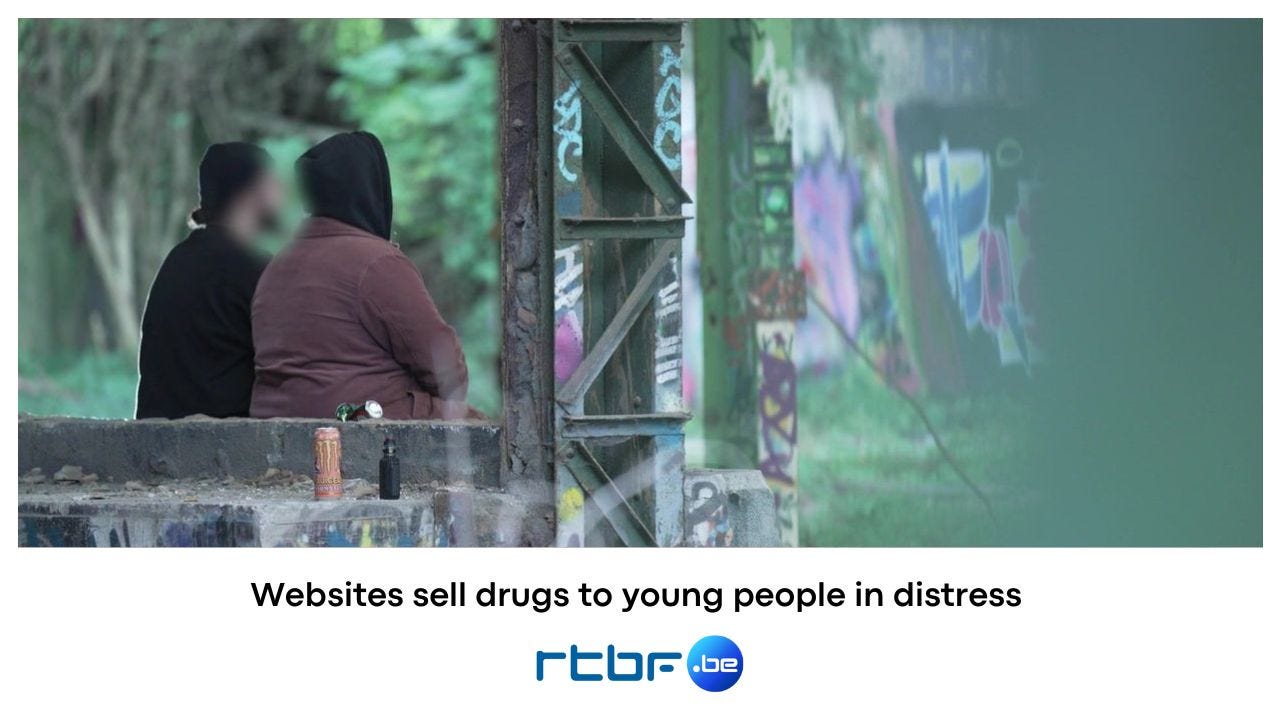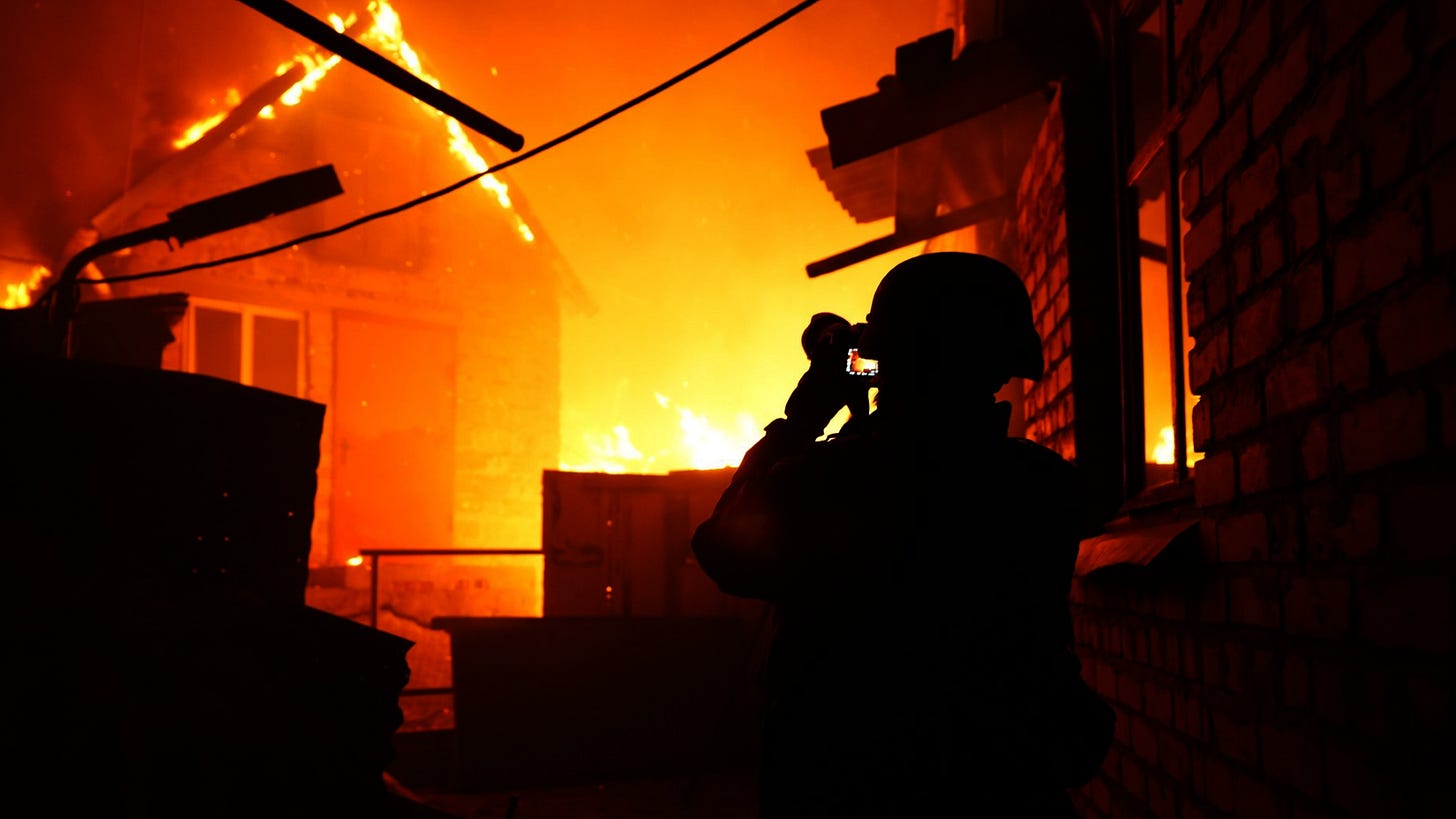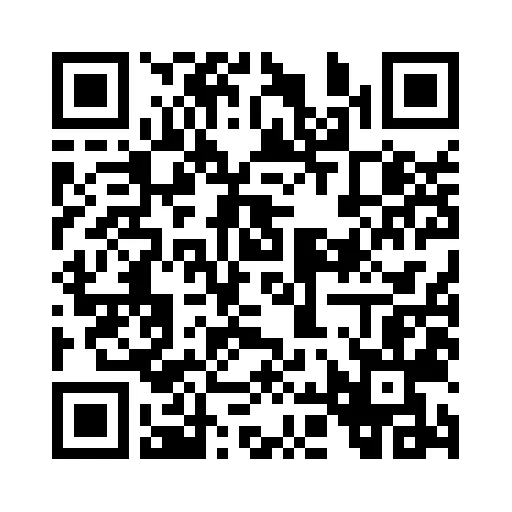Mapping Norway’s environmental threats with AI, the dark side of the Roblox game and the spy in your pocket
Issue 3 of the EBU Investigative Journalism Network newsletter
Welcome to the third edition of the EBU Investigative Journalism Network’s newsletter! We’re bringing you investigative stories from our partners, news about events and tools, and an insight into Norway’s NRK investigative team.
Read on to learn why RTBF in Belgium ordered dangerous substances online, how Norwegian journalists utilized AI to track the destruction of nature, and what ZDF’s reporters found when they went undercover on gaming platform Roblox. You will also find out about the operation of our Norwegian partner, NRK, with Lars Kristiansen, head of the investigative unit. Finally, we invite you to a useful EBU course and introduce the Eurovision News Exchange’s Ukraine Archive.
If you like this newsletter, don’t hesitate to forward it to your colleagues. If you haven’t done so, subscribe by clicking the button below
This investigation revealed that young people can easily access illegal drugs via websites that offer discounts or send samples to encourage new customers. The Belgian broadcaster also found that young people experiencing psychological distress often lack adequate state support, making them even more vulnerable to addiction and unregulated substances sold online. An RTBF team ordered a parcel from one of these websites and took it to a lab to confirm the chemical substance. Police are struggling to intercept these packages, in which the drugs are sent into Belgium, while social services battle to safeguard the young people who order them.
Using AI, NRK found over 44,000 new constructions on natural reserves, by surveying the destruction of marshes, forests and wildlife in Norway. They downloaded over 40,000 satellite images of our country and analyzed them using AI, looking for natural areas that had been built on between 2017 and 2022. The journalists combined the findings with municipal documentation and consulted leading experts in the creation of this visual story.
This ZDF investigation revealed that the users, often underage, encounter groomers, and sexual content on Roblox, an online gaming platform and creation system. Reporters posed as an underage girl as part of a "fake child operation" and joined some of the community groups that enable playing and chatting. They received abusive, intrusive and demanding messages, and inappropriate photographs, as the “fake child” was lured into an external messaging platform. Roblox tightened some age restrictions in late 2024, but ZDF warns that these can be circumvented due to the lack of age verification.
Data given to Swiss SRF and other outlets revealed that popular gaming, weather, and dating apps collect users’ location through advertisements. This data might be sold via traders, the investigation revealed. The dataset from US trader Datastream Group, now called Datasys, contains 380 million locations gathered from over 47 million devices in 137 countries, and 40,000 apps. SRF and its partners in this investigation were able to identify dozens of users and verify the authenticity of the data, but multiple apps mentioned in the investigation denied the allegation. At least one app, Vinted, said it will investigate the indirect impact.
Our partners’ newsrooms: The NRK investigative journalism team
The broadcast of our Norwegian partner NRK reaches 80% of the country’s population. Their 30-year-old investigative TV program, “Brennpunkt” (Focal point) airs four series per year, each with four to six episodes.
In a recent episode “Ære” (Honor), they followed several second-generation immigrants living in hiding after death threats from their own families. In “Instukids,” they tracked the flow of drugs and suicide in childcare institutions.
In recent years, NRK has reinforced the investigative journalism with five new, editorial online staffs, spread out over the country. They have uncovered Norwegian state-owned energy company Equinor’s flaring practices, investigated doctors accused of sexual abuse, and revealed that some children adopted in Norway were stolen from their parents in their birth countries. In 2024, their investigations were seen 20 million times online – nearly four times the population of the country.
Last year, they worked on the series Putin’s Shadow War with Sweden’s SVT, Denmark’s DR, Norway’s NRK, and Finland’s YLE, uncovering Russia’s spy operations in the Nordic countries. The series had a wide international impact and received several international award nominations.
New research tool for EBU Members: Introducing the Ukraine War Archive
Just before the third anniversary of Russia’s full-scale invasion of Ukraine, the EBU Ukraine Archive was made available to all member journalists to use.
The Archive offers more than 25,000 items produced by EBU members, plus verified social media and witness video, published on the Russia-Ukraine conflict since 2022. The content is dynamically refined with additional search tags focused on the laws of war, with every item in the Archive tagged according to editorial and legal categories which will help your journalists search, define and document human rights abuses in this conflict.
Read more about the Ukraine Archive and access it via the News Exchange. For any questions, contact Anne Koch, Project Lead, EBU.
Course: OSINT Detective Days- Geneva, 19 & 20 March
In this two-day, in-person Master Class, participants will master the use of open-source intelligence. The course, led by Derek Bowler, Head of Social Newsgathering at Eurovision News, covers verification, fact-checking and Artificial Intelligence (AI) use for OSINT investigations.
For more information and to apply on the EBU Academy.
We’d love to hear your feedback, and we welcome any investigative stories you’d like to see in our next newsletter. Please send us your links via email or Signal.









